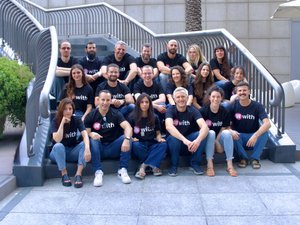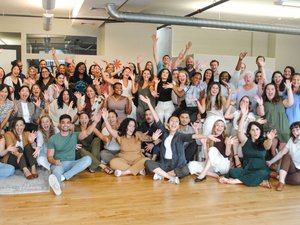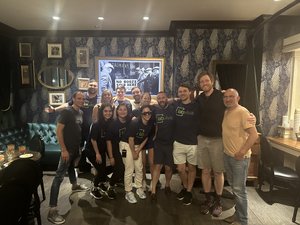Every ribbon-cutting mayor outside of Silicon Valley wants to get innovation right, but without this one ingredient it's a sure bet they won't.
Talent is the sore spot for every growing company and every city. It's the control ingredient in an equation that nobody yet has figured out. Despite thousands of academic papers published and millions of Twitter followers amassed by thought leaders.
It's only likely to get worse. As more Baby Boomers retire, stopping the brain drain of skilled younger workers will be critical for Boston's growth, the Metropolitan Area Planning Council projects.
We'll be gathering at Boston State of Innovation this year not just to talk about talent, but to build it. We're working with General Assembly on a series of workshops, where we'll teach everything from sales to design thinking.
With that in mind, I put a question out to our community of readers last week, asking, "If you could teach Boston one skill, what would it be?"
Here's what I got back:
Global thinking.
Bettina Hein Founder, CEO, Pixability
Boston-based companies need to stop looking just to Silicon Valley for inspiration - instead they should think about the needs of billions of consumers worldwide as well as the global competition by startups that can operate from anywhere.
Persistence.
Gwen Betts Senior designer, Mendix
Starting a business is hard, but growing a fully operational, successful, and performing business is harder. There is no perfect answer on how to do this, but the one common thread in all the successful startups has been persistence. Don't give up. Keep on hustling, even when it feels like you're the only one.
To invest in developing leaders.
Sarah Hodges Pluralsight
We've been fortunate to call ourselves home to a number of incredibly successful companies over the past several years. Yet, amidst this fast paced high-growth environment, rarely do we pause to consider how we can better arm our MVPs with the skills, resources, and relationships they need to grow. We have the talent, experience, and proven executives in Boston that we need to cultivate the next-generation of exceptional leaders; now we just need to rally behind this mission!
How to wield a knife.
Ayr Muir Founder, CEO, Clover Food Lab
In my mind there is no greater gift than knife skills. With quick confident hands you find yourself making food from fresh vegetables every day. That leads to new relationships forged over delicious food, better connection to local economies, and better health. Before I knew how to use a knife it would take me 4 minutes to chop an onion, and I didn't enjoy it. With skills you can do the same task in 30 seconds, and enjoy yourself. The result is that you chop a lot more onions, and chard, and rhubarb, and pears, and sweet potatoes, you get the idea. Your diet is transformed when you learn to use a knife. We would be a healthier happier city with a more vibrant surrounding economy.
Openness.
Artur Sousa Program manager, Krash
Boston is home to many foreign professionals. Through Boston Schools many supertalented people (I include myself) come to the U.S and they could be part of creating a diverse and rich tech scene in the area. Boston could innovate by simplifying the process for immigrants to stay. The process is painful, expensive and time consuming.
Adaptability.
Matt Wells Senior associate, Tremont Interiors
Adaptability doesn’t equate to a blind embrace of drastic, sweeping change, but rather, the ability to pivot and change in small ways, as a reaction to a constantly changing physical and social landscape. A cynic might say that Boston is a say-no-first type of city, and is reluctant to embrace any change. Whether it’s in response to a recent, once-in-a-lifetime opportunity for the city, or the decades long transition of one of its more insular neighborhoods, it seems like we always hear about why these events are bad, before we talk about what good can come of them, and what challenges we need to address in order to secure that good. As Churchill said, “To improve is to change; to be perfect is to change often."
To take risks.
Christine Liu Managing editor, web, America's Test Kitchen
As tempting as it is to go with something prosaic like making scrambled eggs or knowing the basics of Photoshop (both of which will take you far in life), my top choice for Boston would be to take more fun, provocative risks both in terms of individual style, architectural fashion, and public spaces. I'm not implying that our collective choices aren't for the most part beautiful, practical, resourceful or poetic. But to accept the strange reverberations of the avant-garde or dive into something unmoored by tradition is a sensation that isn't necessarily associated with Boston. But there are glimpses for sure—the dependably creepy-awesome ICA exhibitions, the allotted anarchy of the community gardens, and the raw terror of "you know there's a literal ton of knitted gossamer above us" Janet Echelman sculpture take my breath away, just to name a few. Maybe it's my own personal viewpoint—I'd love to be proven wrong—but I can't be the only one that, for example, sorely misses the eerie spark of hurking a handle about and playing a chimes duet with a stranger on the opposite platform at Kendall Station.
Thank you to our sponsors.








